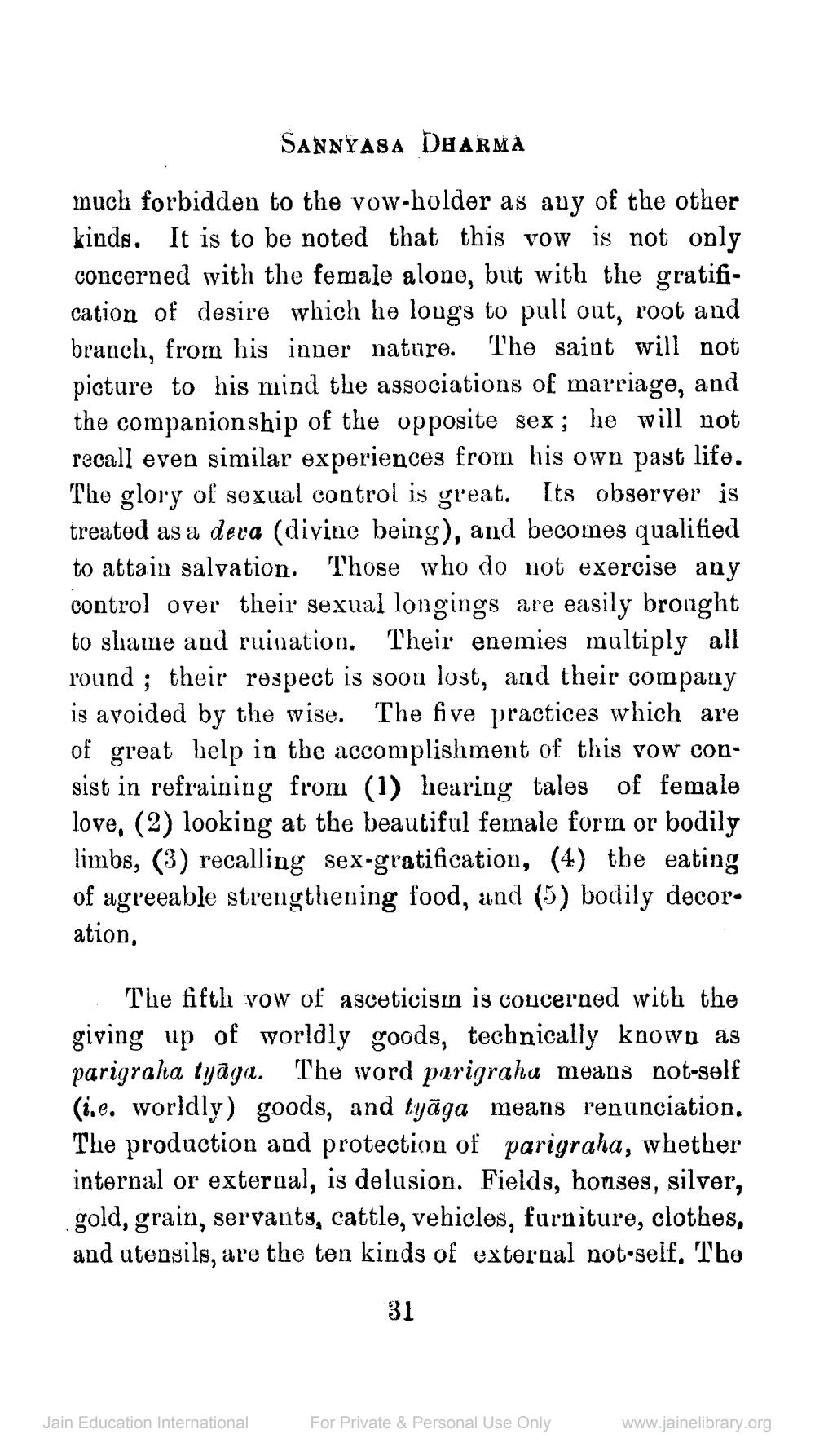________________
SANNYASA DHARMA
much forbidden to the vow-holder as any of the other kinds. It is to be noted that this vow is not only concerned with the female alone, but with the gratification of desire which he longs to pull out, root and branch, from his inner nature. The saint will not picture to his mind the associations of marriage, and the companionship of the opposite sex; he will not recall even similar experiences from his own past life. The glory of sexual control is great. Its observer is treated as a dera (divine being), and becomes qualified to attain salvation. Those who do not exercise any control over their sexual longings are easily brought to shame and ruination. Their enemies multiply all round ; their respect is soon lost, and their company is avoided by the wise. The five practices which are of great help in the accomplishment of this vow consist in refraining from (1) hearing tales of female love, (2) looking at the beautiful female form or bodily limbs, (3) recalling sex-gratification, (4) the eating of agreeable strengthening food, and (5) bodily decoration,
The fifth vow of asceticism is concerned with the giving up of worldly goods, technically known as parigraha tyaga. The word parigraha means not-self (ie. worldly) goods, and tyāga means renunciation. The production and protection of parigraha, whether internal or external, is delusion. Fields, houses, silver, gold, grain, servants, cattle, vehicles, furniture, clothes, and utensils, are the ten kinds of external not-self. The
31
Jain Education International
For Private & Personal Use Only
www.jainelibrary.org




